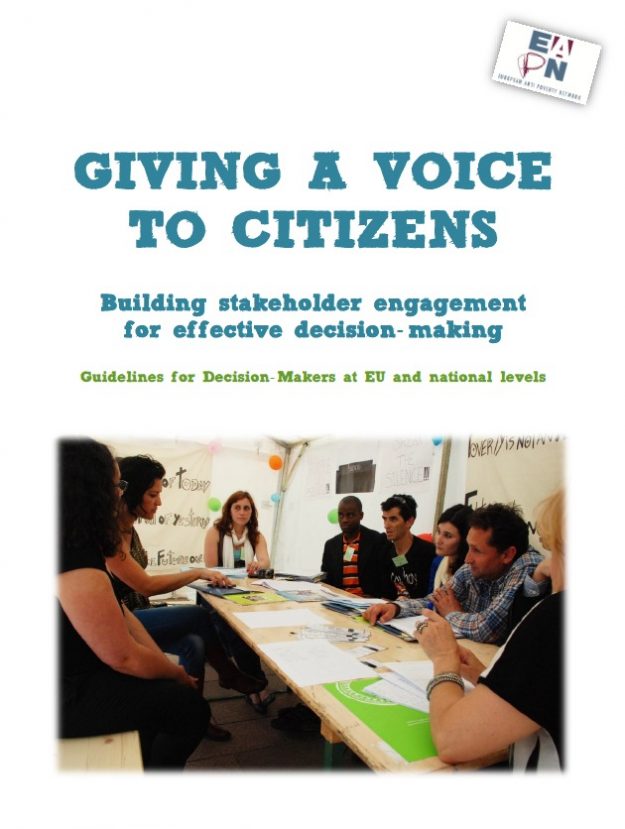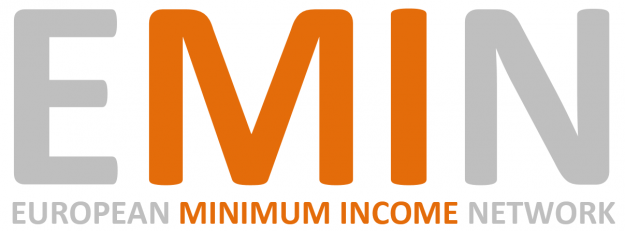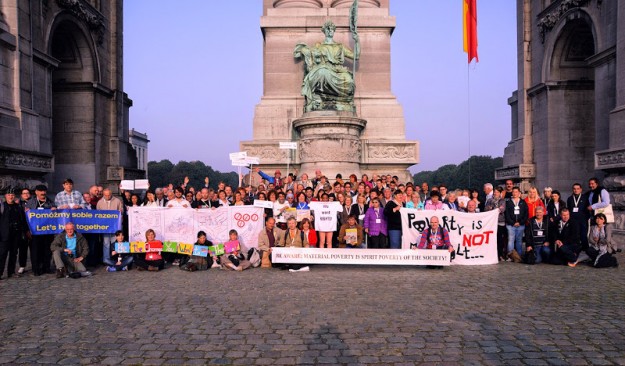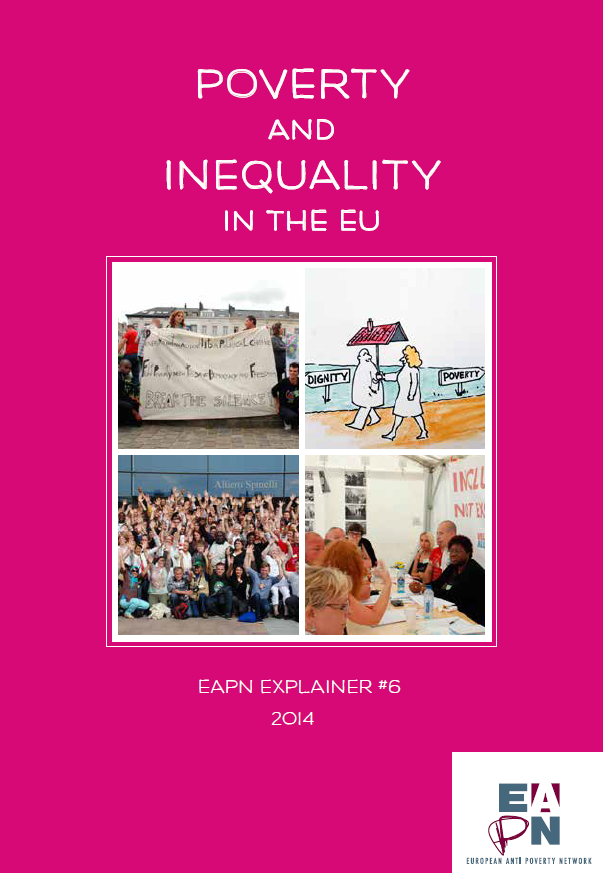Giving a Voice to Citizens – New EAPN Handbook is out!
01/10/2014 – Today, EAPN releases its handbook Giving a Voice to Citizens, addressed to EU- and national-level policy makers to help them build stakeholder engagement dialogue; ie effective decision making, that take into account all the different parties or groups impacted by the policies concerned. The handbook provides common principles, concrete tools and tips and draws on concrete practice at EU national and local levels for authorities to apply and get more effective decision-making processes.






